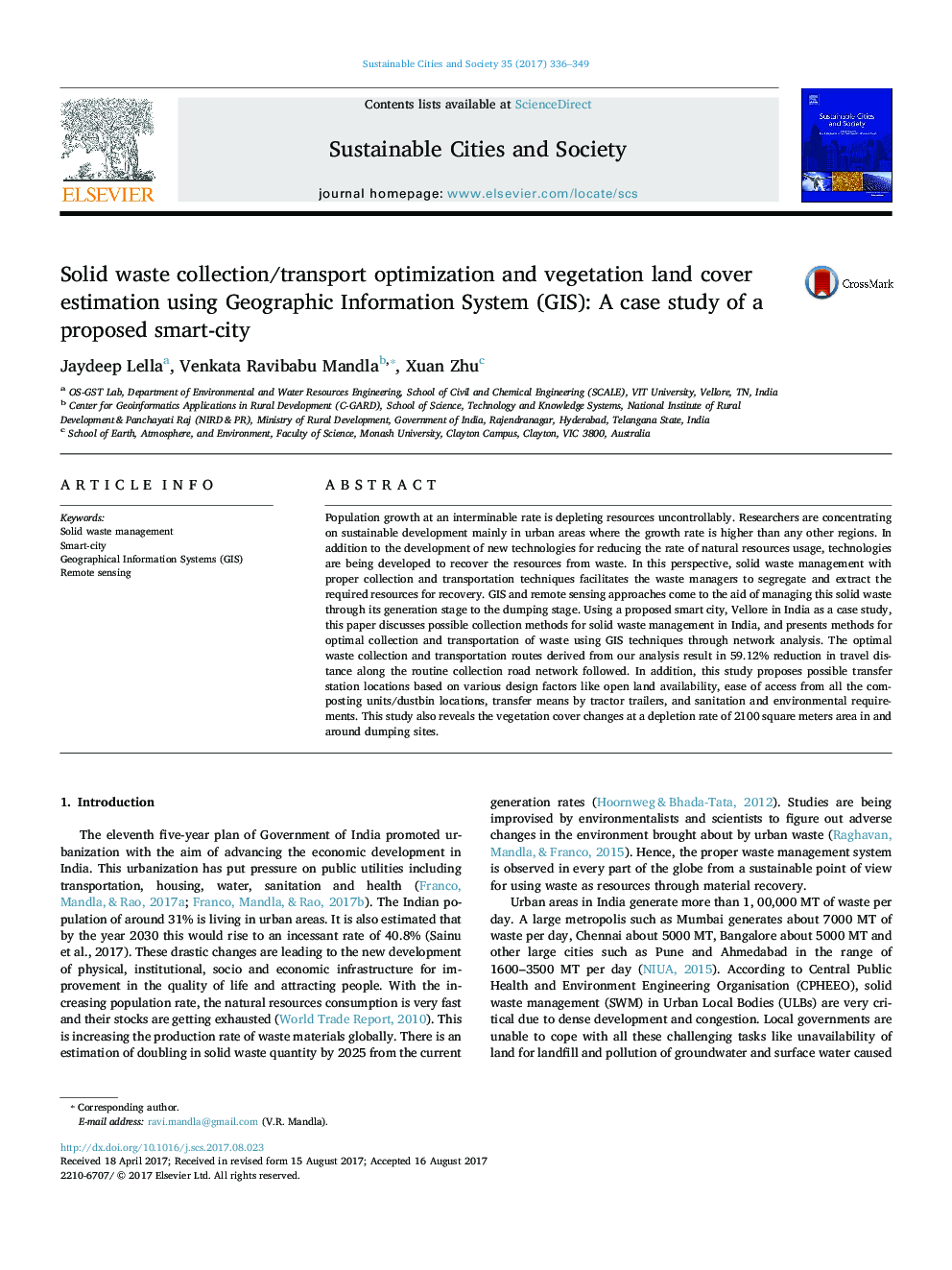| Article ID | Journal | Published Year | Pages | File Type |
|---|---|---|---|---|
| 4928099 | Sustainable Cities and Society | 2017 | 14 Pages |
Abstract
Population growth at an interminable rate is depleting resources uncontrollably. Researchers are concentrating on sustainable development mainly in urban areas where the growth rate is higher than any other regions. In addition to the development of new technologies for reducing the rate of natural resources usage, technologies are being developed to recover the resources from waste. In this perspective, solid waste management with proper collection and transportation techniques facilitates the waste managers to segregate and extract the required resources for recovery. GIS and remote sensing approaches come to the aid of managing this solid waste through its generation stage to the dumping stage. Using a proposed smart city, Vellore in India as a case study, this paper discusses possible collection methods for solid waste management in India, and presents methods for optimal collection and transportation of waste using GIS techniques through network analysis. The optimal waste collection and transportation routes derived from our analysis result in 59.12% reduction in travel distance along the routine collection road network followed. In addition, this study proposes possible transfer station locations based on various design factors like open land availability, ease of access from all the composting units/dustbin locations, transfer means by tractor trailers, and sanitation and environmental requirements. This study also reveals the vegetation cover changes at a depletion rate of 2100Â square meters area in and around dumping sites.
Related Topics
Physical Sciences and Engineering
Energy
Renewable Energy, Sustainability and the Environment
Authors
Jaydeep Lella, Venkata Ravibabu Mandla, Xuan Zhu,
